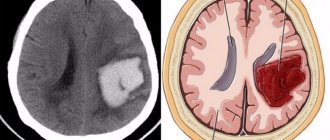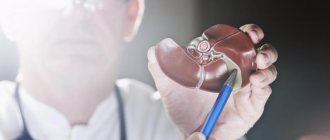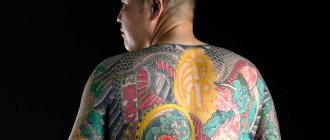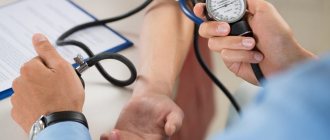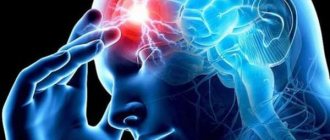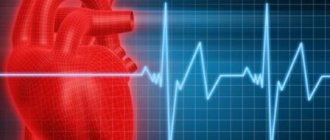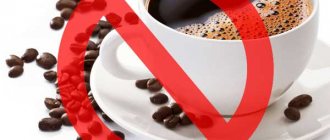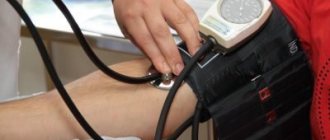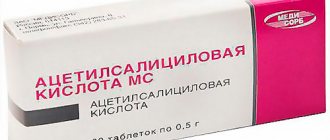The effect of alcohol on VSD
Beer
The main danger of beer for VSD is excessive consumption, since it is not taken seriously and people believe that they can drink it more often and without consequences. However, due to the low alcohol content, a much larger volume is required to relieve nervous tension and feel light compared to other drinks. As a result, the body ends up with the same alcohol content as after drinking stronger alcohol.
Cognac
Sometimes, as a folk remedy for dilating blood vessels and stimulating blood circulation during VSD, it is recommended to take 1 tbsp. l. cognac a day. However, doctors are against such treatment, considering it more appropriate and useful to select medications, including homeopathic ones.
Red wine
Red wine raises the most questions. There are many supporters of the theory that it can prolong life by reducing the risk of cardiovascular diseases. Since people suffering from vegetative-vascular dystonia often have problems in this area, it can be assumed that wine will be beneficial. In addition, it can help cope with increased irritability and reduce stress, which also has a beneficial effect on overall well-being. But there are several nuances.
Red wine is permissible to drink only for vagotonic and hypotonic types of VSD; for hypertonic and mixed types, it is prohibited, like any other alcohol-containing drinks. You can only drink dry red wine with a strength of up to 12% and no more than 150 ml per day.
Factors influencing the development of the disease
Often, the reason for the appearance of VSD lies in a hereditary predisposition or in the future mother’s failure to follow a healthy lifestyle. If a pregnant mother ignored doctors’ warnings and drank alcohol or smoked, the fetus in the womb could experience oxygen deficiency and a lack of nutrition for the child’s brain cells. You need to remember that VSD and alcohol are incompatible things; they not only lead to a deterioration in your health, but can also become a reason for the development of illness in your child.
There are a number of factors for the occurrence of vegetative-vascular dystonia, even if VSD and hangover are absent in a person’s life:
- viral infection, other infectious disease;
- psycho-emotional overload, constant stress, tension;
- chronic intoxication of the body;
- trauma at birth, radiation exposure, brain damage;
- disturbances in the functioning of the endocrine system;
- sedentary lifestyle, smoking, drinking alcohol.
Hangover against the background of VSD
The day after drinking alcohol, a person may experience withdrawal symptoms (hangover). Feeling worse, anxiety increases, symptoms such as headaches in the back of the head and temples, weakness and dizziness appear or intensify.
Due to the diuretic effect of alcoholic drinks, the effect of dehydration is manifested, which leads to a reduction in the volume of circulating blood and, as a result, to an increase in the force of heart contractions. Tingling in the heart and breathing problems occur. Thus, VSD after alcohol only gets worse.
While in this state, a person may resort to the same methods that helped him the day before and drink alcohol again. If this situation is repeated, there is a danger that alcohol dependence will be added to the VSD. The patient's condition will worsen, up to the appearance of panic attacks (vegetative crises), which are characterized by the appearance of severe fear, tremors, a feeling of lack of oxygen, internal trembling, increased heart rate and other symptoms.
What to do in case of a crisis caused by alcohol consumption?
Drinking large amounts of alcohol during VSD leads to an exacerbation of the pathology, which manifests itself in the form of the following symptoms:
- rapid and palpable heartbeat;
- significantly increased blood pressure, especially with hypotension;
- shortness of breath, breathing problems;
- headaches and dizziness;
- increased irritability;
- depressive and melancholic state;
- ringing in the ears;
- instability and impaired coordination of movements;
- blurred vision and visual hallucinations;
- sleep disorders;
- redness and feeling of heat of the skin;
- increased excitability and energy;
- increased feelings of anxiety, panic attacks.
IMPORTANT!
This symptomatology does not occur immediately, since it is the body’s reaction to an excessively large amount of alcohol and sudden changes in blood vessels. At first, when intoxicated, a person with VSD will feel an improvement in his condition; signs of the disease will not yet manifest themselves.
The influence of excessive dosages of alcohol can lead to a hypertensive crisis with the manifestation of all the symptoms described above, to which may be added:
- numbness and tingling in the limbs;
- soreness and tingling in the areas of the heart, liver;
- digestive disorders (flatulence, diarrhea, nausea, vomiting);
- complete lack of strength;
- loss of consciousness.
This reaction most often occurs with VSD in people with alcohol intolerance. In these situations, it is necessary to call an ambulance to prevent the risk of a heart attack against the background of high blood pressure and possible further death.
However, the patient’s condition can be alleviated while waiting for doctors with the use of sedatives that lower blood pressure. It is important that their use is permissible simultaneously with alcoholic beverages. Such drugs include Phenazepam, Eunoctin, Propazin, Teralen. The action of these medications is aimed at restoring the body during alcohol intoxication and hangover; they also help lower blood pressure, which must be done to stop an attack of hypertension.
ATTENTION!
It is prohibited to reduce blood pressure with drugs containing ethanol, as they only make you feel worse and increase the risk of consequences when mixed with alcohol.
After normalizing blood pressure during a hypertensive crisis, the patient needs constant monitoring, as well as taking actions that completely restore the condition:
- Drinking water (preferably mineral) frequently and plentifully to restore water-salt balance.
- Taking adsorbents to eliminate all signs of alcohol poisoning, remove toxins and waste from the body.
- Eating fruits and vegetables (not citrus fruits) to replenish vitamin reserves lost during a hypertensive attack.
When the possibility of physical activity is restored without harm to well-being, the patient should also start playing sports. It is necessary to start leading a healthy lifestyle - eliminate smoking and alcohol, balance your daily diet and ignore stressful situations.
ATTENTION!
A person suffering from dystonia and suffering from a hypertensive crisis due to alcohol consumption is prohibited from drinking alcohol-containing drinks in the future in order to maintain health and avoid a heart attack.
Possible consequences
Doctors note that most often they complain of attacks of VSD after alcohol. This is especially evident in the days after the holidays - patients present with symptoms of dizziness, nausea, apathy, fatigue, shortness of breath, etc.
There is no direct correlation as to whether you can die from drinking alcohol with VSD. However, since alcohol inhibits the brain functions (and this increases with VSD) responsible for controlling behavior, the likelihood of an accident increases. There is also an increased risk of heart attack and stroke.
Those suffering from vegetative-vascular dystonia are often prescribed sedatives to improve their condition. In most cases, such medications are incompatible with alcohol. You must carefully study the instructions for taking medications and follow all doctor’s instructions in order to avoid unpleasant consequences.
Symptoms of VSD
A pathology such as vegetative-vascular dystonia disrupts the body and many of its functions. After the manifestation of the main symptoms, a person can observe:
- violation of thermoregulation;
- hyperhidrosis;
- disruptions in the functioning of the heart and cardiovascular system;
- dizziness.
Pronounced symptoms can be observed with hormonal disorders and in adolescence, when the human body is being rebuilt, as well as with some specific diseases associated with the activity of the brain, nervous system, and endocrine system. Symptoms can be observed in a number of other cases: psycho-emotional states, prolonged stress.
The expansion or narrowing of the arteries is directly related to the disease. A person develops a fever, is thrown into the cold, shortness of breath appears, appetite disappears, and a lack of air is felt. All these symptoms indicate cardiovascular disease or VSD. After the pathology has manifested itself, you should consult a doctor or take prescribed medications.
During the course of the disease, an attack is possible and it usually occurs after drinking large quantities of alcohol. Often people suffering from this disease experience an exacerbation precisely after the holidays, when brain activity is impaired. The nervous system is disturbed by depressive conditions, and the body experiences serious stress. That is, it is with a hangover that clearly expressed symptoms of VSD are noted.
The influence of bad habits
A disease of the autonomic system significantly spoils the patient’s life. Those who are familiar with vegetative-vascular dystonia first-hand often smoke or abuse alcohol. According to them, this is “the only joy in life.” In fact, this is self-deception. Bad habits only temporarily help cope with nervous tension.
Experts say that bad habits have a detrimental effect on health and cause vegetative-vascular dystonia in absolutely healthy people. To protect yourself from this disease, doctors recommend permanently giving up tobacco and eliminating alcoholic beverages.
How to avoid negative consequences?
Only you can decide whether to drink or not drink after VSD. However, if you want to drink and not suffer later, then follow the recommendations below, which will help you influence the mechanism of provoking negative symptoms:
- Consume glycine . In general, this medicine is normally prescribed to patients with VSD, but it helps to avoid an attack after drinking. It helps improve blood microcirculation. In addition, glycine is a substance that has an inhibitory effect in the nervous system. There is a lot of it in its natural form in jellies, and therefore doctors recommend snacking on them with every glass of alcohol.
- You can drink medicinal tinctures , which, although they contain alcohol, are still effective. But it is not recommended to use valerian or hawthorn after alcohol, only some time before it.
- Herbal medicine helps a lot with VSD . But only as an aid.
Well, in general, if you lead a healthy lifestyle, play sports, do what you love, and communicate with pleasant people, then the likelihood of having attacks is significantly reduced. Of course, all these are indirect factors (with the exception of sports), but they help reduce the level of stress, which is one of the causes of VSD.
It has already been noted that with an increase in the quality and standard of living, the symptoms of VSD go away on their own. Not because a person ceases to be sick, but simply because there are no levers that can trigger a painful state.
